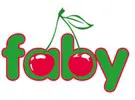The apple sector in the Alte Land, northern Germany, is looking back on a very extreme marketing season so far, as Jürgen Faby, managing director of the eponymous cultivation and marketing company in the heart of the Alte Land, tells us on site.
"There are a lot of things coming together now: We are faced with huge cost increases, whether wages, fertilizer, electricity or fuel. Meanwhile, the producer prices are not at all adequate, because currently the quotations are on average with about 0.10-0.15 euros/kg below the cost prices. Picking costs and other underlying conditions have already meant that many plants have not been harvested at all this fall, and some growers have even decided to go out of business."
Jürgen Faby (left) is responsible for sales to food retailers. His brother Heiko is site manager of the branch office at the Bremen wholesale market.
Nevertheless, Jürgen Faby is looking ahead with confidence. "There is comparatively little overseas merchandise being shipped to Europe, and inventories throughout Europe are also far lower than in previous years. This, in turn, means that there will be less price and volume pressure in the remaining sales months," says Faby, who stresses that this is just damage control.
Insight into apple sorting at the headquarters in Steinkirchen.
Numerous, aggressively priced promotions in the food retail sector
At the beginning of the new harvest in August-September, the starting position for northern German apples should hopefully be better. Faby: "The market will probably be cleared by then, which is a big advantage from a marketing perspective."
Demand-wise, regional apples are enjoying high consumer popularity this year. "Sales volumes have been characterized by many, aggressively priced promotions so far, and demand is significantly higher compared to last year. There are several reasons for this: First, Poland has sought new markets, such as in Asia and South America, which is why fewer goods have been offered on the German fresh market. Secondly, regionality is also tending to be pushed more by food retailers. Finally, the persistently cool weather has also played into our hands."
Packed Braeburn apples in 4-piece winged trays.
Despite the current good stock reduction, many varieties are still available in sufficient quantities. "We still have good quantities of Elstar and Junami in stock, among others, while stocks of Jonagored are lower than in other years. Wellant, meanwhile, is selling well, but the product is expected to last until the new harvest," says Faby, describing the supply situation.
Apple pockets from Faby.
125 years of fruit growing and marketing
Founded in 1898, the traditional company Faby Frucht is now run by the fourth generation. Under the leadership of brothers Jürgen and Heiko Faby, several club variety concepts have also been launched in recent years.
Another focus of the company is the active promotion of regional pear cultivation. Faby: "I see great potential for pear production in the Alte Land. We are also keen to further expand the regional cultivation of Alessia and Xenia. The amount of Xenia grown in the Alte Land is still small compared to other growing regions, but it will continue to increase over the next few years. In the case of Alessia, the first marketable quantities will be available in the coming season."
Jürgen Faby shows packaged Wellant apples grown in the region.
Slight frost damage to early cherries
According to Faby, covered cherry cultivation is becoming more and more established as an interesting alternative to apple growing. The cherries (mainly Kordia and Regina) are usually marketed between the end of June and the end of August. "We have been able to triple our crop volume over the past five to six years, focusing particularly on the later varieties, as competition in the late sector is much lower. 2022 was a very strong marketing year overall. Due to the cold weather, there has already been slight frost damage to Kordia and pollination has not been smooth either, so overall we should expect a slightly smaller but still moderate crop volume."
More information:
Jürgen Faby
Faby Fruchtgroßhandel GmbH & Co. KG
Sandhörn 1 
21720 Steinkirchen
Tel.: 04142-819224
Fax: 04142-819222
juergen.faby@fabyfrucht.de
www.fabyfrucht.de
